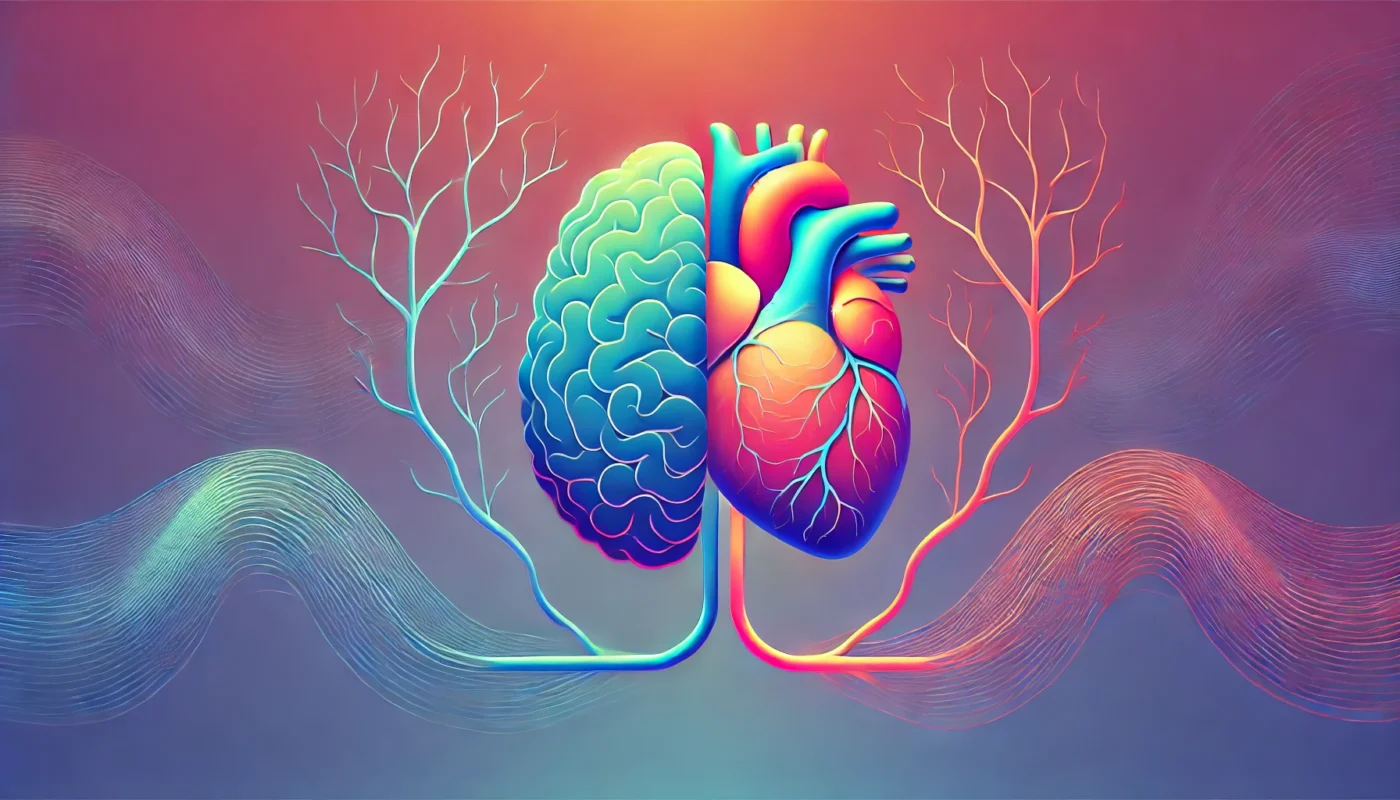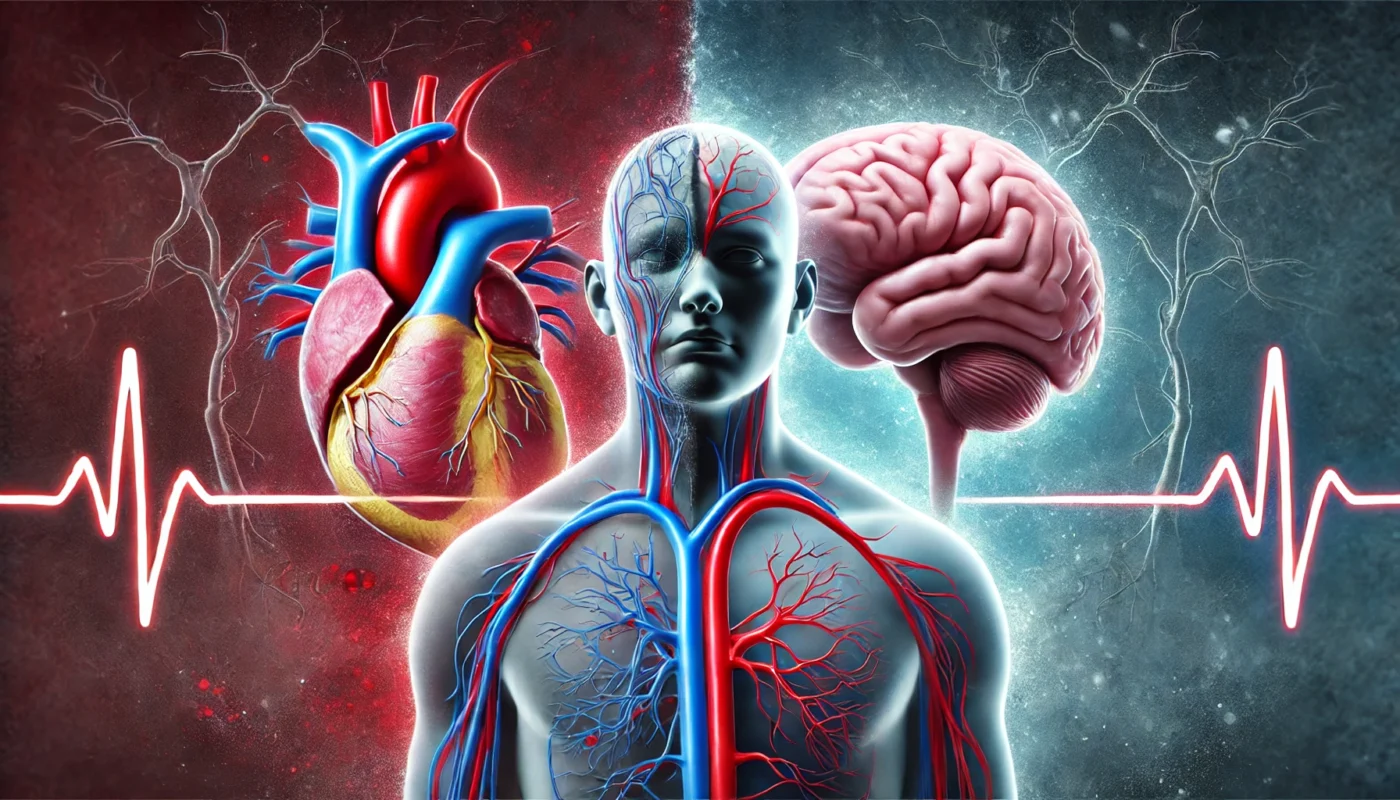Hypertension, or high blood pressure, is a chronic condition that affects nearly half of all adults globally, according to the World Health Organization (WHO). It is a major risk factor for cardiovascular diseases, kidney damage, and stroke. While hypertension is traditionally associated with physical health concerns, emerging evidence highlights its significant connection to mental health, particularly depression. Depression, a common mood disorder characterized by persistent feelings of sadness and loss of interest, often coexists with hypertension, creating a bidirectional relationship that complicates the management of both conditions. This article explores the links between hypertension and depression, the mechanisms that drive their interplay, and strategies for addressing this often-overlooked connection.
You May Also Like: Zinc Picolinate and Allergies: Can It Provide Relief?
The Prevalence of Hypertension and Depression
Hypertension: A Silent Epidemic
Hypertension is often called the “silent killer” due to its lack of noticeable symptoms in the early stages. The condition is responsible for an estimated 7.5 million deaths annually, primarily due to its role in heart attacks, strokes, and other cardiovascular events.
- Global Prevalence: Approximately 1.28 billion adults worldwide have hypertension, and nearly half are unaware of their condition.
- Primary Risk Factors: These include poor diet, obesity, lack of physical activity, stress, and genetic predisposition.
Depression: A Widespread Mental Health Challenge
Depression is one of the leading causes of disability worldwide, affecting over 280 million people. It can have profound impacts on daily functioning, relationships, and physical health.
- Prevalence: Depression affects 5% of adults globally, with higher rates observed in individuals with chronic illnesses.
- Primary Risk Factors: These include genetics, trauma, stress, and imbalances in brain chemistry.

The Link Between Hypertension and Depression
Bidirectional Relationship
The relationship between hypertension and depression is bidirectional, meaning each condition can contribute to the development or worsening of the other.
- Hypertension Leading to Depression:
- The psychological burden of managing a chronic condition like hypertension can lead to feelings of helplessness, anxiety, and depression.
- Biological changes associated with hypertension, such as vascular inflammation and reduced cerebral blood flow, may also impair brain function, contributing to mood disorders.
- Depression Leading to Hypertension:
- Depression is associated with behaviors like overeating, physical inactivity, and smoking, which increase the risk of developing hypertension.
- Chronic stress and depressive symptoms activate the hypothalamic-pituitary-adrenal (HPA) axis, leading to elevated cortisol levels and sustained increases in blood pressure.
Evidence Supporting the Connection
Numerous studies have demonstrated the link between hypertension and depression:
- A longitudinal study in Hypertension Research (2018) found that individuals with depression were 40% more likely to develop hypertension over a 10-year period.
- Research published in The Journal of the American Heart Association (2020) revealed that hypertensive patients with coexisting depression had a higher risk of cardiovascular complications and mortality compared to those without depression.
- A meta-analysis in Psychosomatic Medicine (2019) concluded that individuals with both conditions often experience poorer health outcomes due to the complex interplay between psychological and physiological factors.
Mechanisms Linking Hypertension and Depression
Several mechanisms explain how hypertension and depression influence each other:
1. Dysregulation of the HPA Axis
The HPA axis regulates the body’s response to stress. Chronic activation due to depression or anxiety leads to elevated cortisol levels, which can increase blood pressure and contribute to vascular damage.
2. Inflammation and Oxidative Stress
Both hypertension and depression are associated with chronic inflammation and oxidative stress, which damage blood vessels and impair brain function.
- C-Reactive Protein (CRP): Elevated CRP levels, a marker of inflammation, are often observed in individuals with both conditions.
- Neuroinflammation: Inflammatory cytokines can disrupt neurotransmitter systems, contributing to depressive symptoms.
3. Reduced Cerebral Blood Flow
Hypertension damages small blood vessels in the brain, leading to reduced blood flow. This can impair regions involved in mood regulation, such as the prefrontal cortex and hippocampus, increasing the risk of depression.
4. Autonomic Nervous System Imbalance
Hypertension and depression are linked to overactivation of the sympathetic nervous system (responsible for the fight-or-flight response) and reduced parasympathetic activity. This imbalance contributes to elevated blood pressure and mood dysregulation.

The Impact of Coexisting Hypertension and Depression
1. Worsened Health Outcomes
The coexistence of hypertension and depression increases the risk of cardiovascular events, kidney damage, and mortality. Depressed individuals are less likely to adhere to antihypertensive medications and lifestyle changes, further complicating management.
2. Impaired Quality of Life
Living with both conditions significantly reduces quality of life, affecting emotional well-being, physical health, and social relationships.
Addressing the Hypertension-Depression Connection
1. Integrated Care Models
Managing coexisting hypertension and depression requires an integrated approach that addresses both physical and mental health. Collaborative care models that combine primary care, cardiology, and mental health support have shown promising results.
- Example: The Collaborative Care for Anxiety and Depression in Hypertension (CCAD-H) trial demonstrated improved blood pressure control and reduced depressive symptoms in patients receiving integrated care.
2. Lifestyle Interventions
Adopting healthy lifestyle habits benefits both conditions:
- Diet: The DASH (Dietary Approaches to Stop Hypertension) diet, rich in fruits, vegetables, whole grains, and low-fat dairy, supports cardiovascular health and mood regulation.
- Exercise: Regular physical activity reduces blood pressure and improves mood by promoting endorphin release and enhancing vascular health.
- Stress Management: Practices like mindfulness meditation and yoga reduce stress, lower blood pressure, and improve emotional well-being.
3. Pharmacological Treatments
Medications may be required to manage both conditions:
- Antihypertensive Medications: Some drugs, like beta-blockers and ACE inhibitors, have mood-stabilizing effects, while others may exacerbate depressive symptoms. Careful selection is essential.
- Antidepressants: Selective serotonin reuptake inhibitors (SSRIs) are commonly used to treat depression in hypertensive patients, as they have minimal impact on blood pressure.
4. Therapy and Counseling
Psychological therapies, such as cognitive-behavioral therapy (CBT), are effective in treating depression and improving adherence to hypertension management strategies.

Nutritional Supplements for Hypertension and Depression
In addition to conventional treatments, certain supplements can support both cardiovascular and mental health:
1. Omega-3 Fatty Acids
Omega-3s reduce inflammation and support brain function, making them effective for both conditions. A meta-analysis in Hypertension (2018) reported reductions in systolic blood pressure and improved mood with omega-3 supplementation.
2. Coenzyme Q10 (CoQ10)
CoQ10 is an antioxidant that improves mitochondrial function and reduces oxidative stress. A clinical trial in Hypertension Research (2007) demonstrated that CoQ10 supplementation lowered blood pressure and improved energy levels in hypertensive patients.
3. Hibiscus Extract
Hibiscus promotes vascular health and reduces blood pressure, while its antioxidant properties support overall brain health. Research in The Journal of Nutrition (2010) showed that hibiscus tea reduced systolic blood pressure by 6 mmHg.
4. Magnesium Glycinate
Magnesium relaxes blood vessels and promotes neurotransmitter balance, benefiting both blood pressure and mood. A study in Magnesium Research (2016) found that magnesium supplementation reduced systolic blood pressure by 5 mmHg and improved depressive symptoms.
5. Vitamin D
Vitamin D plays a role in regulating mood and blood pressure. Deficiency is common in individuals with both conditions. A study in The Journal of Clinical Endocrinology & Metabolism (2019) found that vitamin D supplementation improved depressive symptoms and reduced blood pressure in deficient individuals.

Conclusion
The connection between hypertension and depression highlights the complex interplay between physical and mental health. Understanding this relationship is crucial for improving patient outcomes and quality of life. By addressing shared mechanisms such as inflammation, oxidative stress, and autonomic imbalance, healthcare providers can develop integrated treatment strategies that target both conditions. Lifestyle modifications, pharmacological interventions, therapy, and evidence-based supplements all play vital roles in managing hypertension and depression effectively. Recognizing and treating this overlooked connection can empower individuals to regain control over their health and lead fuller, healthier lives.
References
- Hypertension Research. (2018). Longitudinal study on depression and hypertension risk. Hypertension Research. Retrieved from https://www.nature.com/hr
- Psychosomatic Medicine. (2019). Meta-analysis of the hypertension-depression link. Psychosomatic Medicine. Retrieved from https://journals.lww.com
- The Journal of the American Heart Association. (2020). Impact of depression on hypertensive outcomes. JAHA. Retrieved from https://www.ahajournals.org
- Magnesium Research. (2016). Magnesium’s role in blood pressure and mood regulation. Magnesium Research. Retrieved from https://www.springer.com
- The Journal of Nutrition. (2010). Hibiscus tea’s benefits for blood pressure. The Journal of Nutrition. Retrieved from https://academic.oup.com
Key TERMS for this article:
Hypertension, Depression, Chronic Stress, Blood Pressure Regulation, Inflammation, Mental Health, Nutritional Supplements
Relevant and useful TAGS for this article:
Hypertension, Depression, Mental Health, Blood Pressure Control, Stress Management, Inflammation, Cardiovascular Health, Holistic Care, Nutritional Support, Chronic Disease Management
Important Note: The information contained in this article is for general informational purposes only, and should not be construed as health or medical advice, nor is it intended to diagnose, prevent, treat, or cure any disease or health condition. Before embarking on any diet, fitness regimen, or program of nutritional supplementation, it is advisable to consult your healthcare professional in order to determine its safety and probable efficacy in terms of your individual state of health.
Regarding Nutritional Supplements Or Other Non-Prescription Health Products: If any nutritional supplements or other non-prescription health products are mentioned in the foregoing article, any claims or statements made about them have not been evaluated by the U.S. Food and Drug Administration, and such nutritional supplements or other health products are not intended to diagnose, treat, cure, or prevent any disease.

